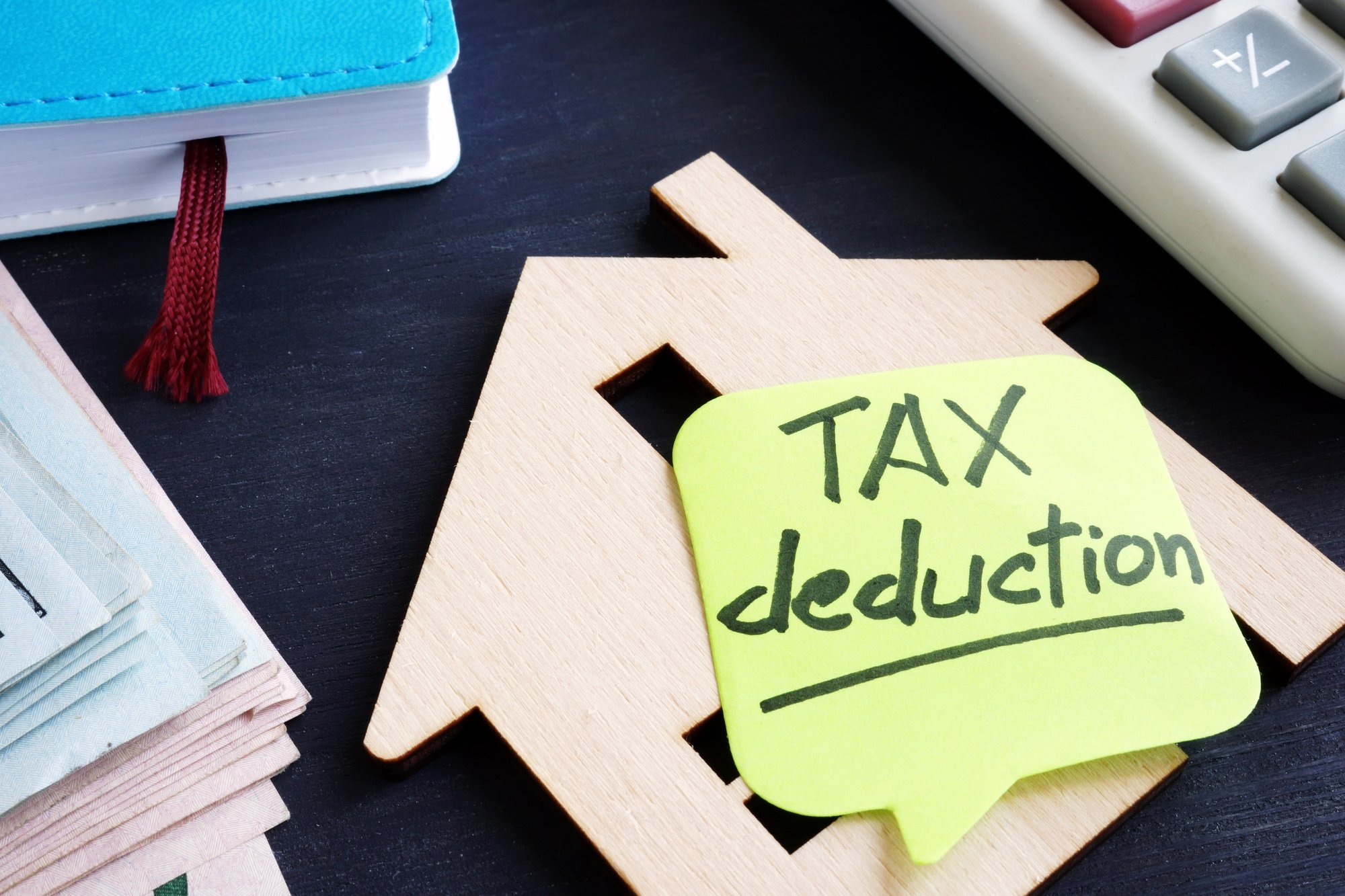Did you know that the average home selling price is above the asking price for the first time since August 2022? Sellers are getting more money because of limited inventory in the market, but what does this mean for taxes?
The demand for real estate in Memphis, TN is still up despite fewer homes for sale and higher home prices.
If you are looking to sell, how will selling a house affect taxes? This complete guide can walk you through tax deductions that you might be interested in receiving.
Capital Gains Tax in Real Estate
To understand taxes and the sale of your home, it’s important to know what capital gains tax is. In real estate, this can be complex as the tax rate depends on:
- Your income tax bracket
- Whether the house was a primary residence
- How long you’ve owned your home
- Your marital status
If your annual income tax is $44,625 or less in the 2023 tax year, you are not subject to capital gains taxes. In other circumstances, the capital gains rate is 20%.
The IRS provides sellers with ways to reduce or completely avoid capital gains taxes if the property is a primary residence.
How Will Selling a House Affect Taxes?
Many home sellers don’t have to report the sale of a home to the IRS except in special circumstances. Knowing the rules about profit exclusions can help you with your tax bill.
So, how will selling a house affect taxes if you are one of the exceptions? It depends on how long you owned and lived in the home before the sale.
If you owned and lived in your home for two of the five years before selling the house, you can earn tax-free profits of up to $250,000. If you are married and file a joint tax return with your spouse, the tax-free amount doubles.
This exclusion can be used every time you sell a primary residence if you haven’t claimed it on another home sale in the most recent two years.
If the profit of the home sale exceeds the $250,000 or $500,000 limit, you can report the excess as capital gains on Schedule D forms through the IRS.
Special Circumstances
If you don’t meet the ownership, use, and timing requirements to qualify for a tax break, there are special rules that might allow you to claim a full or partial exclusion.
Divorce
Generally, at least one spouse must meet the ownership requirements (owning the home for at least two years during the five years before the home sale) to receive the tax break.
However, if a spouse acquires ownership of a home from a divorce settlement, they can count the time the place was owned by the other spouse as time that they also owned the home. You don’t have to file jointly in this case.
Additionally, if you or your spouse is given use of the house during a separation agreement or divorce, the spouse who doesn’t live in the home can still count the days that the other spouse lives in the home.
This typically occurs if one spouse moves out of the home but is still a partial owner.
Temporary Absences
If you don’t meet the traditional use requirement, you can count short temporary absences as time lived in the home. This rule stands even if you rent the home out to others while you are gone.
Death
If either spouse dies and the surviving spouse wants to sell the home, they can count the period that the deceased spouse owned the home as their own.
This is only an exception if the surviving spouse does not remarry before selling the home.
If you and your spouse lived in the home for the same amount of time, this exception won’t provide you with the results you need to get the tax break.
Members of Uniformed Services
If you or your spouse serves on a “qualified official extended duty,” you can choose to have the ownership rule suspended. “Qualified official extended duty” refers to members of the:
- Uniformed services
- Foreign Service
- Federal intelligence agencies
A qualified extended duty is when you are at a duty station more than 50 miles from your primary residence or residing in government housing under government orders for more than 90 days or an indefinite period.
If you did not meet the two-year test requirements because of your service, you might still be able to qualify for the tax break.
Qualifying for a Reduced Deduction
You can treat part of your home sale profit as tax-free if you don’t pass the two-year test if you are available for a reduced exclusion. You might qualify for a reduced deduction if you sell your house because of:
- Employment changes
- Health changes
- Divorce
- Multiple births from a single pregnancy
For example, you might be forced to move into a new place because you just had triplets. In this unforeseen circumstance, the law won’t penalize you.
It’s important to understand what a reduced exclusion is. It does not mean you exclude only a portion of your profit, but means you’ll receive less than the full exclusion.
Reporting the Home Sale on Your Tax Return
If you receive a Form 1099-S, you have to report the sale of your home on a tax return. Not meeting the requirements for excluding the gain on the sale of your home also means you have to report the home sale.
Form 1099-S: Proceeds from Real Estate Transactions should be provided by the real estate closing agent.
A copy of this form will be sent to the IRS unless you provide the real estate agent with assurances that the profit from the sale is tax-free. To do this, you need to tell the agent:
- You owned and used the home as your primary residence for the two-year test requirement
- You haven’t sold another primary residence during the two years ending on the date of the sale
- No portion of the residence was used for rental or business purposes by you or your spouse
- You are single and the sale price is $250,000 or less
- You are married and the sale price is $500,000 or less
Give this information to the closing real estate agent before February 15th of the upcoming year after the sale of the home.
If you’ve made these assurances and don’t receive the form from the real estate agent, you don’t need to report the home sale at all.
Receiving a Form 1099-S means the IRS got a copy too. This doesn’t always mean you owe taxes on the sale of the house. It’s possible that it was a mistake or the closing agent didn’t receive the correct paperwork.
If the IRS does ask, make sure you have the paperwork for them as well.
Gain on the Sale of a Home
If you sell your home for more than it costs, you reap a gain. For tax purposes, it’s important to pinpoint the real cost of your home. You can do this by figuring out the adjusted basis.
The adjusted basis is the original cost of the home plus the cost of any improvements you’ve made. Capital improvements add value to the home, give it a new or different use, or prolong the life of the residence.
Keep in mind that this does not include expenses for minor repairs and routine maintenance of a home.
Some examples of improvements are:
- Remodeled kitchen
- Adding a swimming pool
- Installing a new roof
- Adding central air conditioning
These expenses are added to the original cost of the home to increase the adjusted basis. Therefore, decreasing the amount of gain on the home sale.
However, you can still subtract depreciation, energy credits, and casualty losses to reduce your tax bill.
Original Cost of a Home
The original cost of your home is usually the amount you paid during the real estate sale.
If you purchased your home from someone else, the price you paid is the purchase price. The closing statement should list the costs you need to know about.
If you built your home, the original cost is the cost of construction and the cost of the land. To calculate the original cost of your home in this case, you can include the:
- Amounts paid to your contractor or subcontractors
- Architect fees
- Utility provider connection charges
An inherited home is a little more complicated. Your basis in the house will be the amount you use for the original cost.
Want Cash for Your Home?
So, how will selling a house affect taxes? Most owners don’t have to pay capital gains tax on a home sale.
If you don’t make a profit on your house, get the most money from the sale with We Buy Houses in Memphis, TN. We don’t charge fees for looking at a home or realtor fees.
In addition to getting more money with us, you can get a tax-free profit deduction of up to $250,000 or $500,000 if you file jointly with a spouse.
Ready to start the home selling process? Request a fair cash offer with us today.






